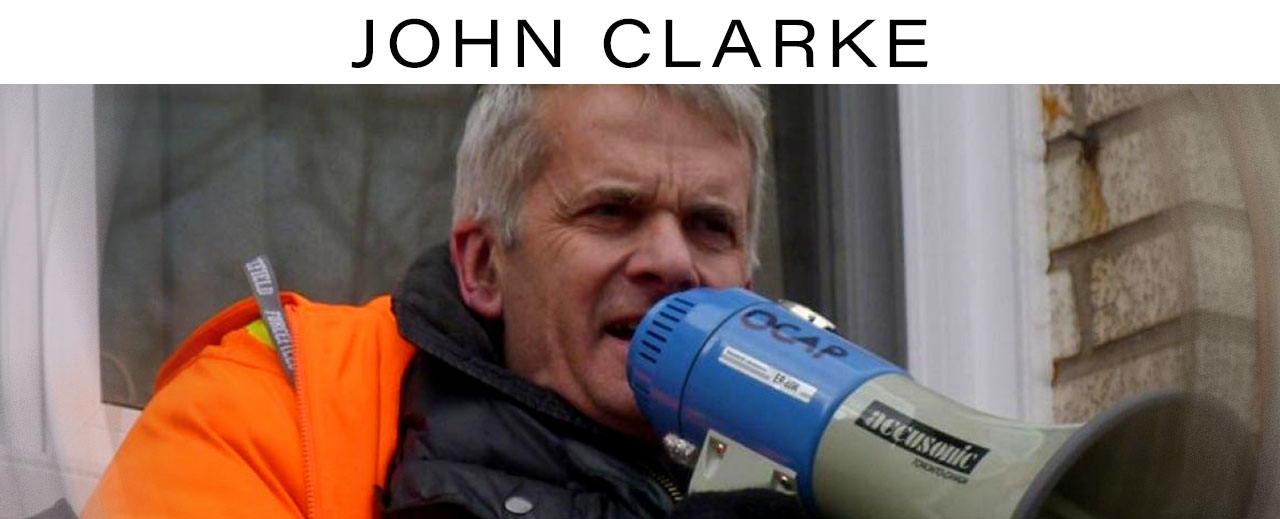
First written for Counterfire.
Sub-prime housing loans in the US played a major role when it came to triggering the 2008 financial crisis and the Great Recession that followed it. Fourteen years later, it is now Canada that has a housing market that is ‘unhinged from reality’ and perched on the edge. Shelter from the elements should be treated as a fundamental social need that is allocated rationally but the extreme commodification of housing in Canada has created enormous hardship and a speculative bubble that threatens to unleash devastating economic dislocation.
In the last twenty years, home prices in Canada have risen by 375% and, in Toronto and Vancouver, they have shot up by 450% and 490% respectively. ‘Canada’s rate of housing prices increase is far more than any other developed market in the world and has given rise to a new economic term to describe the market: “shelter inflation.”’ Precisely because this country didn’t suffer from the same housing market crisis as the US did in 2008, the market here is far more inflated and the gap between real income and housing prices has widened massively compared to the situation south of the border.
At present, more than 10% of Canada’s GDP is related to residential real estate activity. Its ‘housing investment as a share of the economy is higher than any other OECD nation, with the exception of New Zealand.’ As one financial adviser told the National Post, “That’s way too large and unsustainable. It distorts the economy.”
Housing bubble
A study of ‘the world’s least affordable housing markets’ was released at the beginning of this year. It employed a measuring system that deems any city rated above 5.1 as having a housing supply that is ‘severely unaffordable.’ Toronto, at 8.6, beat out London (8.2) and San Fransciso (8.4) but Vancouver stood at an astounding 11.9. The US Federal Reserve issues a quarterly report that is used to determine country wide housing bubbles and this September’s report showed that ‘Canadian home prices have been in bubble territory for 6 years without a correction.’
Not surprisingly, the situation means that millions of people in Canada are massively indebted. The Bank of International Settlements reveals that the debt service ratio (DSR) is higher here than in any other G7 country and that the situation is worse even than it was in the US in 2008 on the verge of the crisis. The UK is actually in second place within the G7 for household debt ratio but it is a full 27.4% below Canada in this regard.
The out of control housing market in Canada is by no means entirely reducible to the lengthy period of low interest rates that has unfolded since the Great Recession. However, it takes very little imagination to appreciate that this country will be exceptionally vulnerable when central banks start pushing rates up. With inflationary pressures and signs of increased militancy by workers, there is a growing feeling among the grandees of global capitalism that the moment is fast approaching when the low interest rate period must be brought to a close.
Perhaps rather understandably, the Bank of Canada has not been among the most hawkish on interest rates. Last month, it brought quantitative easing to a conclusion but stuck to its existing rate policy. Though it opted for caution this month, the Bank of England is far more anxious to jettison a low interest rate policy. Deutsche Bank’s chief executive Christian Sewing recently declared that, “The supposed cure-all of the past years — low interest rates with seemingly stable prices — has lost its effect, now we are struggling with the side effects. Monetary policy must counteract this — and sooner rather than later.” Sewing is pressuring the European Central Bank (ECB) to act decisively along these lines. It is clear that higher interest rates are in the wings and it is every bit as obvious that the implications for heavily indebted households are enormously serious.
Housing as a right
The creation of a speculative housing bubble, with millions of hard pressed families perched on the edge, generates at the same time, a situation where rental costs are driven up, forcing tenants to go short on other necessities in order to stay housed. The threat of eviction and homelessness hangs over enormous numbers of people in Canadian cities. It’s reported that 10.5% of renter households in Vancouver experienced an eviction as the reason for their last move.
As impossible rents drive people into arrears, landlords remove people from their homes. The resources that should be put into social housing and decent social benefit systems are allocated to police ‘services’ instead. One eviction of a man and two children in Toronto that took place in April, a day before a pandemic shutdown was put in place, saw more than twenty police cars and dozens of cops deployed to put the family on the streets. “There's no justification to sending 26 cruisers to evict a single peaceful man, and his two children. That is inhumane,” said the evicted tenant.
As housing developers and speculators make a killing, those who have already lost their housing are not spared further persecution. Homeless people in Toronto have been forced to establish encampments in public parks to try and stay safe. The brutal clearing out of these camps is now under way, with massive police operations being unleashed to put this into effect. In July, 26 people were arrested in one such police assault on homeless people.
In the face of a needless housing crisis, no level of government is addressing the subordination of housing needs to the profit motive. To the extent that ‘solutions’ are advanced, they involve making peace with the vested interests in return for a meagre supply of ‘affordable’ homes within an oversupply of luxury housing on prime urban space. Toronto City Council has just adopted a plan that is based entirely on this approach. Both left and right on Council seem ready to accept that the days of limiting private development and putting serious resources into social housing are over.
At the federal level, the Trudeau government has consistently failed to seriously address the grim and worsening lack of truly affordable housing. Its much heralded National Housing Strategy in 2017, took the same approach of looking to private investors to drive housing development. This led to its efforts being bitingly characterised as a ‘national gentrification strategy.’
As homeless people sleep on the streets and families live with the threat of eviction, the commodification of housing creates a situation where 1.3 million homes in Canada sit empty. Driving this enormous injustice is a frenzy of parasitic speculation. It has been revealed that, in Ontario over the last ten years, there has been a huge increase in the purchase of homes by investors who won’t live in the properties they buy up. These kinds of transactions now account for a full 25% of home sales.
The former UN Special Rapporteur on the Right to Housing, Leilani Fahra, has described the situation very well from a global perspective:
‘Housing and real estate markets worldwide have been transformed by global capital markets and financial excess. Known as the financialization of housing, the phenomenon occurs when housing is treated as a commodity – a vehicle for wealth and investment rather than a social good.’
She counters this wretched state of affairs with the simple but powerful proposition that ‘housing is a fundamental human right.’ The tragic results of this profit driven distortion of the provision of housing are clear and obvious in Canada at the moment. Yet, the pursuit of this has not only created precarious and inadequate housing for many and thrown others into destitution. It has also inflated a speculative bubble that threatens to derail the economy. Perched on the edge of catastrophe, Canada’s inflated housing market is a testimony to the greed and irrationality of capitalism.
